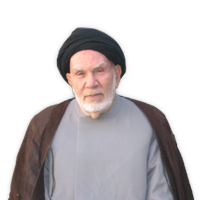seeking the Truth
In the Name of Allah
Have you ever thought whether the path you have chosen in life is right or wrong?
But prior to attaining the truth, a person often is in a state of doubt as to which path to choose. Eventually he gets attached to one method and follows it.
In this article we will discuss: Is the method one gets attached to and spends his life on, right or wrong?
Imagine a child who is born in a family. This child blindly accepts what his parents believe in. But when the same child's intelligence grows, he should act beyond dependence on his parents and do research on his parents' method or that of his society to find whether they have indeed chosen the right method.
Are the orders his parents or society give him and their do's and don'ts for their own benefits or are their intentions truly to make a man?
He should not move blindly and accept whatever they say merely because they are his parents and that he is dependent on them. If he ponders sufficiently and does enough research and finds out what they say is not true, he should let them know that what he has found is the truth, not what they say.
Let us give an example of the story of Prophet Abraham and his father. Abraham saw that his father would carve idols. He thought to himself: Are these idols true or not? (Holy Surah Anaam, Ayah 74). Abraham became an idol-breaker starting from those days and this has become an important historic and religious event.
Or Socrates worked with his father, who was a sculptor, from when he was a child. He was instructed to use a paste to cover the tiny holes in the sculptures so that they would seem more attractive to the customers. However, one day he thought to himself: Do I have to spend my entire life with this practical lie? Is not what I am doing just so? This was how he left his job and took on another path and became a renowned philosopher.
Therefore, one should see whether what is injected into him according to which he spends his life, is truly right.
We will now give an example of a personality who was given a high position, and before becoming proud because of his status looked at himself and asked if he deserved the position or whether it was the right of another.
Ghazali (1058-1111) writes in one of his books:
You will not go after research unless I create doubt in you.
This means that if you are not doubtful, you will not move out of stagnancy and will not be able to set yourself free from the attachments, which take you to the wrong path.
Ghazali studied in Nishapur and achieved a high scientific status there.
When the head of Nizamiyyah College of Baghdad died, they were looking for a man who was competent enough for this position; in other words, he had to be above all scientists (This was during the era of Malik Shah Seljuq empire, when the sultans and scientists had a lot of differences and therefore a person should have been appointed to this position who was a researcher to heal these differences).
Ghazali writes in his book, The Deliverance from Error (Al-munqidh min al-dalaal):
They selected me as the head of the Nizamiyyah College of Baghdad. I then started becoming proud of my status and asked myself if I deserved what was granted to me.
I was a chief professor at the Nizamiyyah College of Baghdad. Whenever I would go to lecture, a lot of people paid respect to me. I was becoming proud of myself. I told myself that I had to go and decapitate the head of my pride …
Gradually this feeling became stronger in me; wherever I was, whether praying, in class or on the streets, I felt a prickling sensation. On the one hand if I would freely pursue the truth, what would I do with my position? I was stuck between two opposing powers. This was the cause of my inner struggles. I announced that I was going for a pilgrimage to Mecca.
Therefore, arrangements were made for my pilgrimage. I was freed from Baghdad with a caravan travelling to Mecca. But I was still known there and respected. I freed myself from the caravan and travelled towards the north instead of going southwest. I changed my clothes and wore the clothes of a Dervish and hid myself from the eyes of others. Everyone said Ghazali has either been left behind from the caravan or a wild animal has eaten him or he has fallen in a well and died in a corner.
I lived for ten consecutive years anonymously in Jerusalem and traveled from one place to another seeking the truth.
Some say he provided service in a school in Damascus where prominent scholars taught and eventually returned to Ghazaleh in Mashhad, built a school and died there.
Esteemed Philosopher, Professor Mosavi:
We have an objection to Ghazali's method and that is: Why did he not follow the path of Wilayat and Ismat of Imam Ali (AS) with all his intellect and in spite of being very clever and delicate in his views.
It will be good if you and we too, wherever we are and whatever we are engaged in, see whether our mission in the world is only what we are busy in. Is it the truth that we are engaged in or are we following the wrong path?
We mentioned the path of Ghazali in life as an example in this article. The path of the great Shiite religious leader, Sheikh Morteza Ansari (May Allah exalt him) when the author of the book Jawaher assigned the position of leadership of the schools of theology to him is filled with great scientific and Gnostic realities which you can view in the section "Biographies of Prominent Shiite Scholars".
Resource: Professor Mousavi on Vol. 9 of Mulla Sadra's book, Asfar, Professor Mousavi's Booklet Resurrection 12, Page 1000 and Professor Mousavi's Booklet 'Love', Page 162: The Path of Ahmad Ghazali in Life
One of the articles presented in Kabudan, summer 2010
By Dr. Mosavi's disciples residing in Kabudan




Comments
0